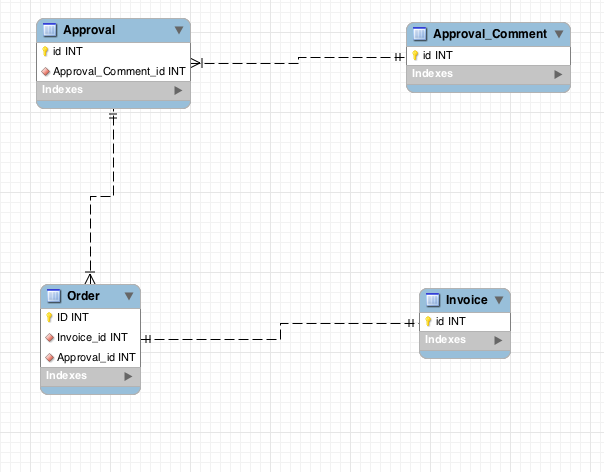I'm working on building a business application for my company and struggling to pick the most appropriate database design for a particular situation. Let's say I have the following entities:
Approval
- Id
- Status
- ...
ApprovalComment
- Id
- ApprovalId
- Comment
Order
- Id
- ...
Invoice
- Id
- ...
There obviously might be multiple types of approvals and multiple objects that require approvals. What would be the most appropriate of the following options for designing the tables:
OPTION 1
Have one approvals table with null foreign keys:
Approvals
- Id PK
- Status
- OrderId FK NULL
- InvoiceId FK NULL
ApprovalComments
- Id PK
- ApprovalId FK
- Comment
In this case I would have to add a column for every object that needs an approval
OPTION 2
Have a parent Approvals table with common fields, and a child table for each object that needs an approval:
Approvals
- Id PK
- Status
ApprovalComments
- Id PK
- ApprovalId FK
- Comment
OrderApprovals
- ApprovalId PK FK
- OrderId FK
InvoiceApprovals
- ApprovalId PK FK
- InvoiceId FK
OPTION 3
Have an approvals table for each object:
OrderApprovals
- Id PK
- OrderId FK
- Status
OrderApprovalComments
- Id PK
- OrderApprovalId FK
- Comment
InvoiceApprovals
- Id PK
- InvoiceId FK
- Status
InvoiceApprovalComments
- Id PK
- InvoiceApprovalId FK
- Comment
I know these are all valid solutions, but I can't decide which one would be best for adding different types of approvals in the future. Any thoughts?

